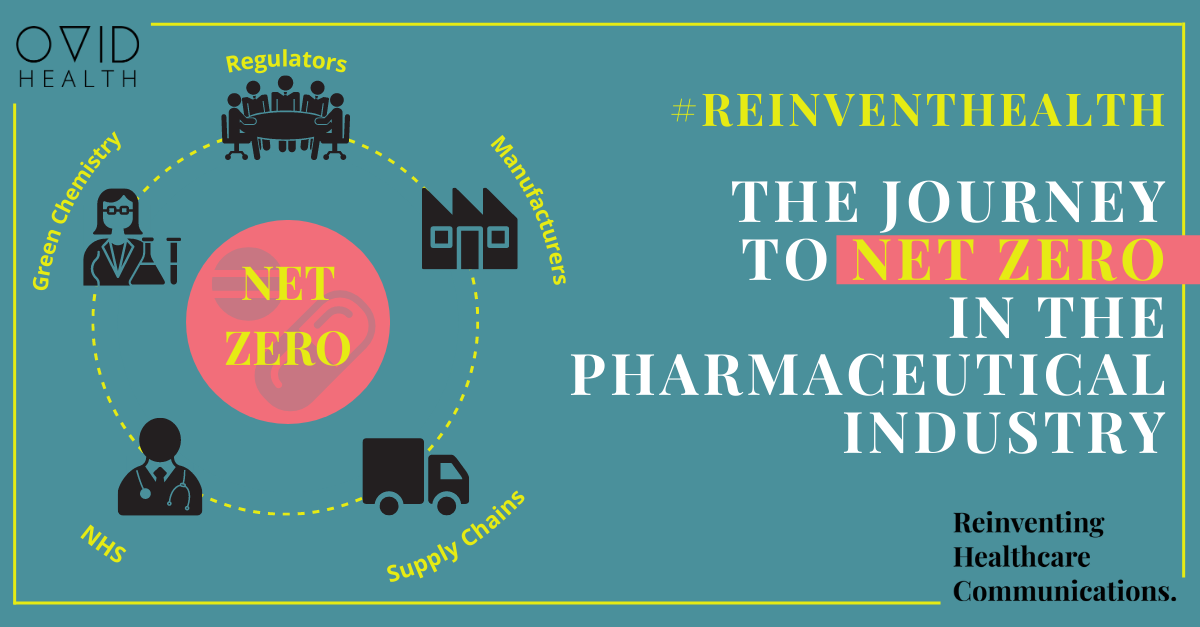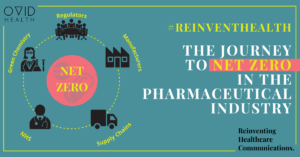
23 Mar Net Zero: a revenue-raising exercise for the NHS or a genuine partnership for the decarbonisation of healthcare?

Boris Johnson last week launched his Global Britain blueprint. But there are only two successes which will truly count for him when it comes to the UK on a world stage this year: delivery of a world-leading COVID-19 vaccination programme and a successful COP26 conference.
The health and pharmaceutical sectors have played a crucial role on the first one of these. The reputational uplift for the industry as it responded to the pandemic and the unprecedented levels of partnership with the highest levels of Government in therapeutics and diagnostics, as well as in vaccines, has been exceptional. So how can they have a role in the second? Read on to discover how you can get involved in our latest initiative…
This is already on life sciences’ agenda. From manufacturing targets with 100% renewable energy or recyclable asthma inhalers, companies are shifting to a more environmentally sustainable future – including decarbonisation.
When the Government launched its industrial decarbonisation strategy last week, the Minister called upon industry to support the ambitious 2050 net zero target with “fervour, innovation and commitment”. These words reminded me of the time I led the pharmaceutical sector’s campaign for a plastics tax exemption. The Treasury’s words ringing in my ear “you are one of the most innovative industries in the world, innovate your way to reducing plastics”. While industry’s commitment to sustainability and innovation were both true, the idea that healthcare companies can resolve this alone is a fantasy.
For plastics, the pharmaceutical industry was able to set out convincingly to the Government that safety, the overriding priority for all healthcare companies, was regulated and operated on a framework and timelines set by the Government themselves. Industry couldn’t just decide to replace old packaging with new at mass scale overnight. The same complexities apply for decarbonisation. Yes some challenges are in common – greener energy in manufacturing or in transport – others must go hand in hand with regulators, such as green chemistry, appropriate prescribing to reduce waste and, as already mentioned, packaging.
Needless to say, decarbonisation will be a commercial imperative. Net zero is a genuine priority for the NHS; as it should be – it produces an estimated 4% of Britain’s total carbon emissions. On his appointment last year, Nick Watt, Chief Sustainability Officer at the NHS said “within a decade the NHS will not buy from suppliers who do not meet NHS carbon policies”. In practice that is likely to look like a combination of an updated NHS carbon metric tool and carbon “charges”. Which begs the question, will net zero be a revenue-raising exercise or a genuine partnership between the healthcare industry, the Government, regulators and the NHS to be world leaders in decarbonisation?
So back to Global Britain, the vaccine roll-out and COP26. How do we in the pharmaceutical and medtech industry communicate this complexity when everyone wants only a case study or headline? How do we enter into genuine partnerships to create a path to net zero NHS by 2050? We are launching a thought leadership initiative to do just this at OVID Health, if you want to hear more get in touch with me at [email protected].